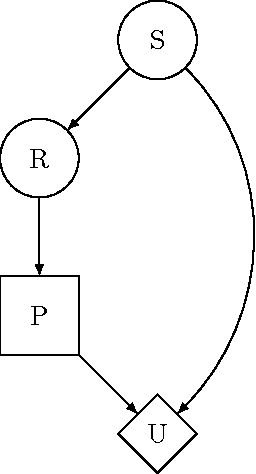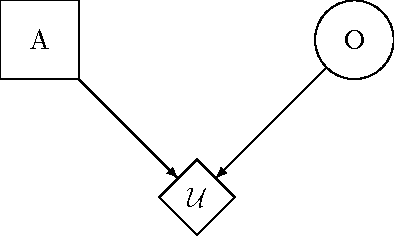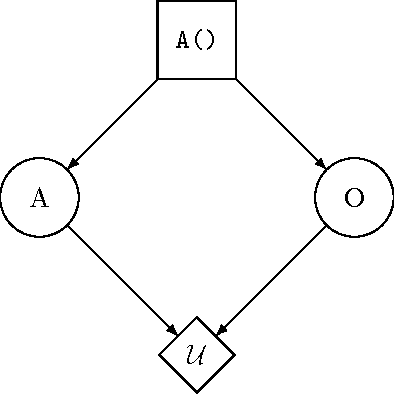Benja Fallenstein
Reflective Oracles: A Foundation for Classical Game Theory
Aug 17, 2015Abstract:Classical game theory treats players as special---a description of a game contains a full, explicit enumeration of all players---even though in the real world, "players" are no more fundamentally special than rocks or clouds. It isn't trivial to find a decision-theoretic foundation for game theory in which an agent's coplayers are a non-distinguished part of the agent's environment. Attempts to model both players and the environment as Turing machines, for example, fail for standard diagonalization reasons. In this paper, we introduce a "reflective" type of oracle, which is able to answer questions about the outputs of oracle machines with access to the same oracle. These oracles avoid diagonalization by answering some queries randomly. We show that machines with access to a reflective oracle can be used to define rational agents using causal decision theory. These agents model their environment as a probabilistic oracle machine, which may contain other agents as a non-distinguished part. We show that if such agents interact, they will play a Nash equilibrium, with the randomization in mixed strategies coming from the randomization in the oracle's answers. This can be seen as providing a foundation for classical game theory in which players aren't special.
Toward Idealized Decision Theory
Jul 07, 2015



Abstract:This paper motivates the study of decision theory as necessary for aligning smarter-than-human artificial systems with human interests. We discuss the shortcomings of two standard formulations of decision theory, and demonstrate that they cannot be used to describe an idealized decision procedure suitable for approximation by artificial systems. We then explore the notions of policy selection and logical counterfactuals, two recent insights into decision theory that point the way toward promising paths for future research.
 Add to Chrome
Add to Chrome Add to Firefox
Add to Firefox Add to Edge
Add to Edge